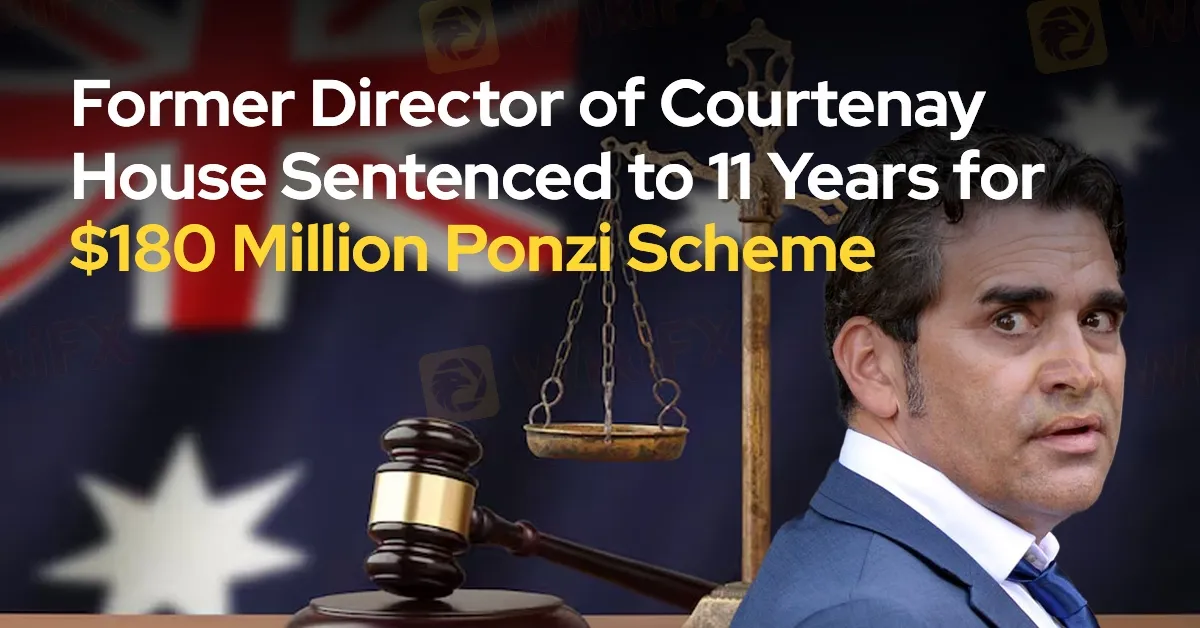Abstract:Tony Iervasi, the former director of Courtenay House, has been sentenced to 11 years in prison by the Supreme Court of New South Wales for his role in orchestrating a $180 million Ponzi scheme.

Tony Iervasi, the former director of Courtenay House, has been sentenced to 11 years in prison by the Supreme Court of New South Wales for his role in orchestrating a $180 million Ponzi scheme. Iervasi will serve a non-parole period of seven years following his conviction for criminal charges related to the scam, which deceived hundreds of investors.
Supreme Court Justice Sweeney condemned Iervasi's actions, characterizing them as dishonest on an “egregious scale.” She noted that Iervasi had carefully constructed the facade of a successful wealth-generating business, a tactic that reassured and persuaded many victims to entrust their money to him.
Between December 13, 2010, and April 21, 2017, Iervasi served as the sole director and shareholder of Courtenay House, during which time the company raised approximately $180 million from around 585 investors. Despite the massive inflow of funds, the total net loss to investors was calculated at about $54 million. Furthermore, Iervasi personally benefited from $12 million of the misappropriated investor funds.
Courtenay House marketed itself as a company trading in Forex and futures markets, promising lucrative returns to investors. However, the reality was far different. Only about three percent of the deposited funds were ever actually traded. Instead, returns to investors were paid from the capital invested by new investors, a classic hallmark of a Ponzi scheme.

The severity of Iervasis actions was further underscored by the profound impact on the victims. Justice Sweeney detailed the extensive harm caused, noting that many investors lost their life savings and family homes. Beyond the financial devastation, the fallout included the breakdown of marriages and family relationships, as well as significant emotional, physical, and mental health issues. Many victims were forced to delay retirement or return to work due to the loss of their financial security.
In light of his guilty plea and other mitigating factors, Iervasi received a reduced sentence. Nonetheless, Justice Sweeney took into account the lengthy period of offending, the sustained deceit involved, the large number of victims, the total amount of money lost, and the significant portion of funds that Iervasi used for his own benefit.
Iervasi pleaded guilty to four offenses of engaging in dishonest conduct related to financial products or services, in violation of Section 1041G of the Corporations Act 2001 (Cth). He also admitted guilt to charges of operating an unlicensed financial services business, contravening Section 911A of the Corporations Act 2001 (Cth), along with two additional offenses under Section 1041G that were considered in his sentencing.
The liquidation of Courtenay House Capital Trading remains ongoing, with liquidators having distributed dividends of 28 cents on the dollar to affected investors.
In a related case, David Sipina, who was involved in investor referral and marketing for Courtenay House, pleaded guilty on March 19, 2024, to charges of operating a financial services business without a license and dealing with proceeds of crime amounting to $1 million or more. Sipina's sentencing will take place in the Sydney District Court on April 19, 2024.
Sipinas guilty plea acknowledged his role in the unlicensed business from June 24, 2015, to April 21, 2017. It was noted, however, that Sipina was not accused of knowing about the underlying Ponzi scheme, although he admitted to earning commissions from promoting investments in Courtenay House despite its unlicensed status.











